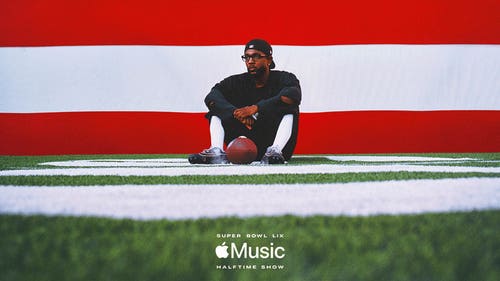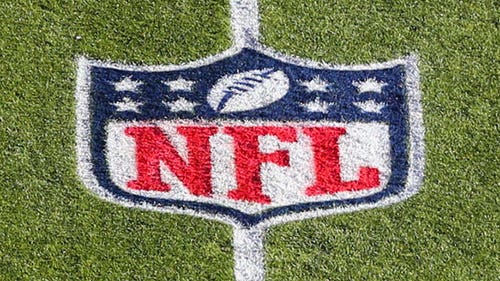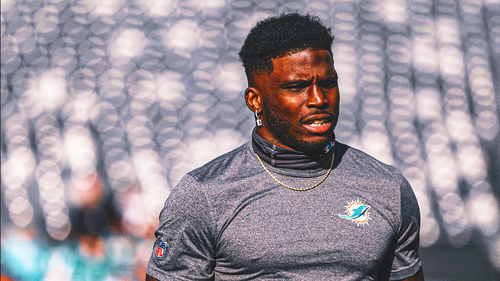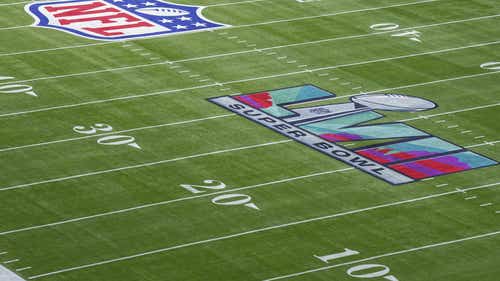
Pro Football 101: The challenge of ranking the 101 best NFL players of all time
By Joe Posnanski
Special to FOX Sports
Editor's Note: Throughout the 2021 NFL season, Joe Posnanski will rank the 101 best players in pro football history, in collaboration with FOX Sports. Posnanski will publish a detailed look at all 101 players on Substack.
OK, I don’t want to offer any spoilers before even beginning, but I’m going to offer one up anyway.
Herschel Walker did not make my countdown of the 101 greatest pro football players ever.
That’s not the spoiler, since you obviously did not expect him to make it.
No, the spoiler is … Herschel Walker almost made it.
Welcome to the Pro Football 101.
It is impossible to count down the 101 greatest NFL players. You know that. I know that. Heck, it’s impossible to count down the 100 greatest baseball players, and I spent a decade or so writing that, rewriting it and rewriting again before finally finishing and having it become a book that weighs, like, 28 pounds and will be out in a couple of weeks.

The history of the game, including legends such as Jim Brown, will come to life in the Pro Football 101. (Photo by Focus on Sport via Getty Images)
The Pro Football 101 is exponentially more impossible than the Baseball 100.
Now that I have distracted you by completely misusing the word impossible — yes, Ms. Richmond, my fifth-grade English teacher, I do remember that impossible actually means impossible, and I’m sorry — I will tell you why The Pro Football 101 is more impossible.
Five reasons:
1. Twenty-two different positions.
In baseball, you do have to work through the problem of comparing pitchers and hitters and resolve the significantly less thorny issue of comparing players at different positions such as shortstops and left fielders.
But that’s nothing like trying to compare different positions in football. Basically, everybody on the football field has an entirely different job.
A running back and a linebacker and a cornerback and an offensive guard don’t do the same things. This isn’t apples and oranges. This is comparing a claw hammer and a piccolo and a Corvette and your Aunt Cindy’s pecan pie. None of them is really comparable.

How do you compare the abilities of a guard, such as Larry Allen at right, with those of a running back, such as Emmitt Smith? (Photo by Albert Dickson/Sporting News via Getty Images via Getty Images)
How are you supposed to say this wide receiver catches passes better than this defensive end rushes the passer? How are you supposed to say that this defensive tackle takes up blockers better than this quarterback runs an offense?
Impossible. Of course it is.
2. Statistical mayhem.
There are many issues with baseball statistics, but at least there are so many to choose from and so much raw data to work with. The game is particularly well-designed for counting.
Not so with football. It isn’t just that most positions do not have compelling statistics — are we supposed to count pancake blocks for offensive tackles? — it is that even the most common stats can mislead. Take passing yards for quarterbacks, one of the most well-known stats in football. Are passing yards good? Yes, of course. So that means it’s good for a quarterback to throw for 400 yards in a game, right? Sure, it has to be good.
But teams have a losing record when quarterbacks throw for 400 yards.
So, wait, throwing for 400 yards is not good?

Dan Marino holds the NFL record for most games with 400 yards passing (15, including two playoff games). While Marino was very good, not all 400-yard passing games are good. It's complicated. (Photo by RHONA WISE / AFP via Getty Images)
No, it’s still good — but it probably means that the team fell way behind and needed to throw a whole lot to try to catch up. But that’s not always what it means. Sometimes, 400 yards passing come in a wild and competitive shootout in which teams keep trading touchdowns until the final whistle.
But then again, sometimes it means a quarterback had a great first half and built a huge lead. But then again, sometimes it means garbage-time yards when the game is far out of reach.
In other words: 400 yards passing could mean just about anything.
And passing yards are an easily accessible stat. What about something less straightforward, such as tackles.* It’s hard to count tackles because quite often three or four or more players are involved in a tackle, but even beyond that — is it good for a player to make a lot of tackles? Sure, obviously, of course, it’s good. But what if those tackles are all seven or eight yards downfield? Well, then, it’s not good.
Isn’t this fun?
*It occurs to me now that the word "tackle" is a silly word and is wildly overused in football. You’ve got offensive tackles who are not allowed to tackle, defensive tackles who are usually trying to set up someone else for the tackle and the act of tackling, which is its own thing. I’m now thinking about how many times I’m going to have to write the word "tackle" over the next few months … and I’m already feeling semantic satiation, that feeling when you’ve repeated a word so often that it temporarily loses all meaning. Tackle. TACKLE! Tackle. Damn it!
3. Football is not the same game.
Baseball fans don’t like to admit that the game changes, though obviously, it does. We like the illusion that baseball is timeless.
Football allows no such illusions.
Football has no interest in such illusions.
The rules have changed dramatically: Defensive backs can no longer bully receivers, defensive ends can no longer bat offensive lineman in the head, nobody can lead with his helmet, on and on and on and on.

Mel Blount and the defensive backs of the 1970s could bully receivers at the line of scrimmage in a way that today's cornerbacks can only dream about. (Photo by Focus on Sport/Getty Images)
Also, the players have gotten much bigger, much stronger, much faster. Also, strategies have changed, officiating has changed, the equipment has changed, substitution patterns have changed, training has changed, television coverage has changed, on and on forever.
We might believe that Mike Trout and Henry Aaron and Babe Ruth were all playing roughly the same game. But what about Julio Jones, Paul Warfield and Don Hutson? What about Von Miller, Lawrence Taylor and Chuck Bednarik? Does anyone think they all played the same game? No.
4. How do you separate one football player from another?
Baseball, it has often been noted, is an individual game inside a team game. Football is not. Football is a team game inside a team game. We might want to look at players as individuals — quarterbacks, for sure, running backs, pass-rushers, receivers — which is certainly good for our fantasy football leagues.
But in football, nobody can do anything without relying on just about everyone around him. A pass must be caught. A hole must be opened. A blocker must be diverted. Yes, there are great individual plays in football all the time, but they happen inside a much larger construct.
How do you separate greatness? Can you? Did Johnny Unitas make Raymond Berry, or did Raymond Berry make Johnny Unitas? Or both? Did Peyton Manning make Marvin Harrison, or did Marvin Harrison make Peyton Manning? Or both? The famous Steel Curtain defense of the 1970s had five Hall of Famers — Mean Joe Greene, Jack Ham, Jack Lambert, Mel Blount and Donnie Shell — and it’s fair to ask if all five were all-time greats, or did one or two of them make the others look a lot better?

Peyton Manning, right, and Marvin Harrison formed an unstoppable combination. But how do you evaluate their individual greatness? (Photo by Harry How/Getty Images)
Plus, there's the overall context of football.
In 1970, Terry Bradshaw was the first overall pick by the Pittsburgh Steelers.
In 1971, Archie Manning was the second overall pick by the New Orleans Saints.
What would have happened if that had been switched? Would Manning be in the Hall of Fame and the voice of FOX NFL Sunday? Would Bradshaw have suffered through a million losses and had two Super Bowl-winning quarterback sons?
Did Harrison and Peyton Manning make each other better, or did one make the other better … or none of the above?
I’ve often thought about what would have happened had the New England Patriots taken West Virginia quarterback Marc Bulger in the fifth round of the 2000 draft rather than defensive tackle Jeff Marriott. If the Pats had done that, they certainly would not have taken a quarterback in the sixth round, a guy named Tom Brady.
Bulger was about the same size as Brady, had a really strong arm, was a better college quarterback and was good enough as an NFL quarterback to throw for more than 4,000 yards in one year. Under Bill Belichick, would he have led the Patriots to a slew of Super Bowls?
These are impossible questions to answer.*
*I would like to say that in the Bulger scenario — no, I don’t think Marc Bulger leads the Patriots to any Super Bowls, no offense to him. I have a theory about Brady and greatness that … well, I’m getting ahead of myself; the list hasn’t even begun.

Could anyone other than Tom Brady have led Bill Belichick's Patriots to all those Super Bowls? (Photo by Jim Davis/The Boston Globe via Getty Images)
5. Is pro football even meant for such lists?
I have talked to many, many people for this Pro Football 101, and I would say that at least half of them questioned the whole idea and said something like: "Football is a team game. It’s just not about individual players."
Of course, that hasn’t stopped people from doing lists such as this. The folks at my former home, The Athletic, have put together a Top 100 list, as did NFL Films and USA Today and The Sporting News and various other places.
So with all of that … why in the world would I do a Football 101?
That leads us back to Herschel Walker.
You probably think Herschel Walker was a bust as a pro football player. That’s how the story has been told.
Walker is always at or near the top of every list of greatest college football players (could that list be coming someday?), but when it comes to pro football, well, Walker played for the Cowboys just as they started getting really terrible, and then the Cowboys traded him to Minnesota for, like, 500 draft picks, and then the Vikings were hugely disappointing with Walker as their back, and then he went to Philadelphia and was sort of a jack of all trades there, and then he had that one utterly forgettable year with the Giants, and then he went back to Dallas just as the Cowboys were again getting really terrible.

Herschel Walker is probably most remembered for being traded out of Dallas, but his pro football career was actually exceptional. (Photo by Focus on Sport/Getty Images)
Then Herschel became an Olympic bobsledder and an MMA fighter. Then he had some businesses, and now he’s a controversial political figure, so there’s really no particular interest in trying to figure out just how good a pro football player he was.
But here’s the thing: Herschel Walker was a great professional football player. Not a good one. A great one.
He made some waves a while ago, when he said he should be in the Pro Football Hall of Fame and some people mocked him for it … but he was right. He absolutely should be in the Hall of Fame. I don’t think he’s one of the 101 greatest pro football players ever. But he’s close. Really close.
Here’s why I say that: When Herschel Walker became a pro after his extraordinary college career, he signed with the USFL. Say what you will about the USFL, but Walker’s numbers there were ridiculous: 1,866 rushing yards per season over three years.
Those seasons were 18 games long, but still he ran for almost 5,600 yards in three seasons, scored 61 touchdowns and set the pro football record for most yards in a season (2,411). He was absurdly great. True, it was against inferior USFL competition, but is there any doubt that had he gone straight to the NFL he would have been great?
There should be no doubt about that because then he went to the Cowboys, and even though he’d taken more than his share of hits in college and the USFL, he was great.
In his first season, Dallas coach Tom Landry insisted on giving the bulk of the carries to a much-diminished Tony Dorsett, but Walker still averaged 4.9 yards per carry, scored 14 touchdowns — two of them longer than 80 yards — and led the NFL in yards per touch.
In his second NFL season, the strike-shortened season, Walker led the NFL in yards from scrimmage even though, again, the Cowboys wasted a whole bunch of carries on Dorsett.
In his third season, Walker finally got the bulk of the carries, and he rushed for 1,514 yards and gained more than 2,000 yards from scrimmage.

Walker was in another stratosphere during his three seasons in the upstart USFL. (Photo by Al Pereira/Getty Images/Michael Ochs Archives)
Then the Cowboys traded him to Minnesota for all those draft picks, and the Vikings totally misused him (though they did make him a kick returner — and he immediately became one of the best in the NFL). In 1990, despite the Vikings’ complete failure to understand Walker’s strengths, he led the NFL in all-purpose yards.
Then he went to Philadelphia as a featured back, rushed for 1,000 yards and scored 10 touchdowns at age 30, even though he’d carried the ball roughly 10 million times in his college and pro career. At age 31, he caught 75 passes and still gained 4.3 yards per carry. At age 32, he broke off a 91-yard touchdown run and also had a 94-yard kickoff return for a touchdown. The man was absolutely incredible. But, like Artie Fufkin, he just had bad timing.
What does this have to do with me doing the Pro Football 101? Well, Herschel Walker reminds me that I never do these lists to rank the players. That’s just a bonus.
No, I ranked the 100 greatest baseball players, and I’m now ranking the 101 greatest football players in order to tell their stories, dive into their greatness and, through them, hopefully, tell the story of the sports themselves.
Sure, the rankings are important because they grab people’s attention, they spark conversations and arguments, and I have spent hundreds and hundreds of hours putting together the Pro Football 101 list.*
*I have had so much help putting together this list, first and foremost from you, the thousands of fans who participated in the pro football countdown game Tom Tango and I created. I have also connected with numerous NFL historians and players and coaches, who I will be revealing as we go, though I must give special mention to my friend Michael MacCambridge, author of the essential "America’s Game" and one of the most thoughtful pro football observers in the world. Michael might not want to be connected to the list once you all see it, but I couldn’t have done it without him.
And I do think it’s different from every other list that has ever been done. There are numerous traps that I think most football lists fall into: too many quarterbacks, too many running backs, not enough emphasis on defense, too many players from the all-time great teams, too much reliance on legend and myth, overrating older players and underrating current players, etc. I can tell you right now that I fall into some of these traps, too, but I try to break away.
But the big point, my big point, is to celebrate this thrilling and troubling, violent and balletic, awe-inspiring and problematic game of pro football that has consumed me since I was a little boy.
I have always loved baseball, but I have obsessed over football. I have always dreamed about baseball and lived and died with football. The sports are so different, and they appeal to such different parts of me as a fan. The Baseball 100 was my effort at telling baseball’s story as I see it.
The Pro Football 101 will be my effort to come to grips with this hold football has always had on me … and maybe, if I do it right, it will make you think about the hold football has had on you, too.
Joe Posnanski is a New York Times bestselling author and has been named the best sportswriter in America by five different organizations. His new book, "The Baseball 100," comes out Sept. 28.









